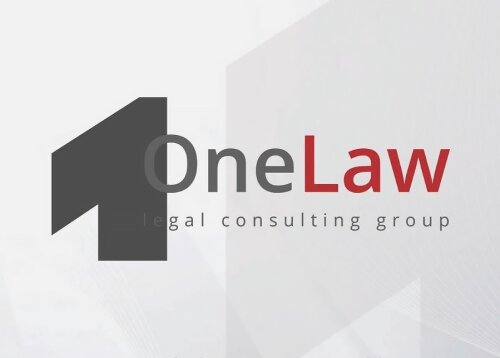Best Landlord & Tenant Lawyers in Yekaterinburg
Share your needs with us, get contacted by law firms.
Free. Takes 2 min.
Free Guide to Hiring a Real Estate Lawyer
List of the best lawyers in Yekaterinburg, Russia

About Landlord & Tenant Law in Yekaterinburg, Russia
In Yekaterinburg, landlord and tenant relationships are governed by both federal laws and local regulations. These laws are designed to regulate the rental market, ensuring a fair and balanced interaction between landlords and tenants. The Civil Code of the Russian Federation and the Housing Code provide the legal framework for lease agreements, setting out the rights and responsibilities of each party. Local regulations may also affect rental agreements, especially in terms of property management and housing standards.
Why You May Need a Lawyer
Several common situations may necessitate seeking legal advice in the realm of landlord and tenant relationships. These include disputes over rent payments or increases, disagreements concerning property repairs and maintenance, eviction processes, and the drafting or termination of lease agreements. Legal guidance can also be crucial when dealing with housing discrimination or ensuring full compliance with local housing laws. A lawyer can help navigate these issues, offering advice and representation to protect your interests.
Local Laws Overview
In Yekaterinburg, key aspects of local laws relevant to landlord and tenant relationships include the necessity of written lease agreements, regulations on rent control, tenants' rights to quiet enjoyment, and landlords' obligations for property maintenance. The law also stipulates circumstances under which landlords can legally enter the property. Evictions must follow a legal process, giving tenants rights to contest any action considered unjust. Understanding these statutory requirements is essential for both landlords and tenants to avoid conflicts and ensure compliance.
Frequently Asked Questions
What should be included in a lease agreement?
A lease agreement should include the duration of the tenancy, rental amount, payment method, responsibilities for utilities, and conditions for termination or renewal. It's also wise to outline maintenance responsibilities and pet policies.
Can a landlord increase the rent anytime?
No, rent increases must adhere to the terms specified in the lease agreement. Any increase should be communicated in writing, typically with a notice period as required by local laws.
What are my rights if my landlord does not make necessary repairs?
Tenants have the right to demand necessary repairs be completed in a timely manner. If repairs are not made, tenants may seek legal remedies, which may include reducing rent or terminating the lease.
How can a landlord legally evict a tenant?
A landlord must follow the legal process for eviction, which includes providing a notice period and obtaining a court order if the tenant does not voluntarily vacate the property.
What happens if I need to break my lease early?
Breaking a lease without penalty generally requires mutual agreement with the landlord. Otherwise, tenants may be liable for remaining rent unless extenuating circumstances are legally recognized as valid reasons for termination.
Can a landlord enter my property without notice?
No, landlords are typically required to provide notice before entering the property, unless in the case of an emergency. The specifics are usually outlined in the lease agreement.
Are security deposits required, and how are they handled?
Security deposits are common and should be detailed in the lease agreement. The landlord is obligated to return the deposit at the end of the tenancy, minus any legal deductions, like damages beyond normal wear and tear.
What should I do if I'm facing discrimination in housing?
Discrimination in housing is illegal. You can file a complaint with the relevant governmental bodies or seek advice from a lawyer specializing in housing discrimination cases.
How can I verify if the person leasing a property is the rightful owner?
Request documentation proving ownership, such as registration papers, and consider seeking legal advice to verify the legitimacy of the landlord's ownership.
Who is responsible for paying property taxes, the landlord or the tenant?
Generally, property taxes are the responsibility of the landlord unless otherwise specified in a lease agreement. Tenants typically pay for utilities and services they consume.
Additional Resources
For assistance with landlord and tenant issues in Yekaterinburg, consider contacting local legal aid organizations, the housing department of Yekaterinburg, or the Russian Union of Property Owners. Legal consultations can also be obtained from private law firms specializing in real estate and tenant law.
Next Steps
If you need legal assistance, start by gathering all relevant documents such as your lease agreement, any correspondence with your landlord or tenant, and evidence of payments. Schedule a consultation with a lawyer who specializes in landlord and tenant law. They can provide personalized advice and guide you through resolving any disputes or legal matters.
Lawzana helps you find the best lawyers and law firms in Yekaterinburg through a curated and pre-screened list of qualified legal professionals. Our platform offers rankings and detailed profiles of attorneys and law firms, allowing you to compare based on practice areas, including Landlord & Tenant, experience, and client feedback.
Each profile includes a description of the firm's areas of practice, client reviews, team members and partners, year of establishment, spoken languages, office locations, contact information, social media presence, and any published articles or resources. Most firms on our platform speak English and are experienced in both local and international legal matters.
Get a quote from top-rated law firms in Yekaterinburg, Russia — quickly, securely, and without unnecessary hassle.
Disclaimer:
The information provided on this page is for general informational purposes only and does not constitute legal advice. While we strive to ensure the accuracy and relevance of the content, legal information may change over time, and interpretations of the law can vary. You should always consult with a qualified legal professional for advice specific to your situation.
We disclaim all liability for actions taken or not taken based on the content of this page. If you believe any information is incorrect or outdated, please contact us, and we will review and update it where appropriate.












